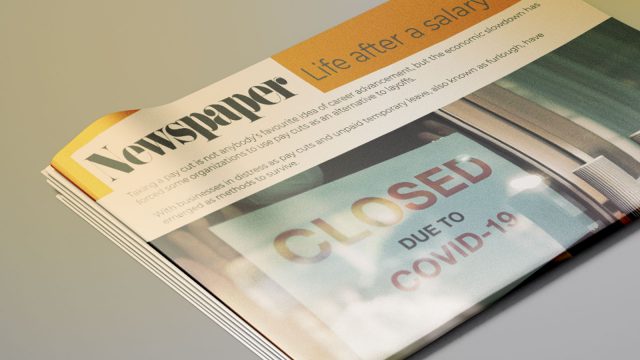Life after a salary cut
The COVID-19 pandemic has stalled economic activity at an unprecedented scale and while organisations may not want to lay off employees, the drain on resources may force them to temporarily cut their pay.

Taking a pay cut is not anybody’s favourite idea of career advancement, but the economic slowdown has forced some organizations to use pay cuts as an alternative to layoffs.
With businesses in distress as pay cuts and unpaid temporary leave, also known as furlough, have emerged as methods to survive.
“Since the crisis began, client spending and revenue for most organizations have continued to drop. To survive this pandemic, and its impact on businesses, employees – of all levels – need to be willing to take a pay cut,” Ms. Mwikali Muthiani Managing Partner at MillennialHR told Moolah.
Despite the negative impact of COVID-19 on business, most organizations are determined not to lay off employees or to raise the cost of goods or services to customers, but they are increasingly getting constrained by the drain in resources.
“It is a Catch-22 situation: you either cut people or cut pay. Not every organization has the financial wherewithal to absorb losses arising from this pandemic,” Oxygene MCL Human Resources Manager Ms. Kui Kogi said. “Most companies are likely to implement organization-wide pay reduction in order to try to prevent staff redundancy.”
The onus is on the employer to communicate the proposed salary reduction to staff, painting an honest picture of the situation and the available options for employees.
In the current circumstances, pay cuts shouldn’t be seen as something negative but should be properly communicated.
“This crisis is unprecedented, but we can only borrow from previous instances on the best course of action to take. We cannot say how long these measures will be in place. We will, of course, be continuously reviewing the situation,” Ms. Kogi added.
In Kenya, the salary-sacrificing announcement formally began by President Uhuru Kenyatta’s proposed stimulus package that had the executive members and senior government officials take pay cuts of between 30 and 80 per cent. However, several organizations in the private sector had long rolled out salary reduction measures, especially those in the hospitality sector.
“Travel and tourism sectors have been hit badly by the COVID-19 pandemic. Everyone in the value chain including operators, travel agents, and hotel owners are facing a bleak future triggering layoffs and pay cuts,” the Kenya Association of Travel Agents (KATA) Chairman Mr. Mohammed Wanyoike said.
So, what do you do when you suffer a salary cut?
The first course of action should be to review your finances and adjust your lifestyle in line with this new reality.
“Prioritizing the basics such as rent and keeping the lights on should naturally take precedence over any big capex investments,” says Lillian Ngala, the Head of Human Resources at Diamond Trust Bank. “There’s no harm in pausing any investments if that would shore up your contingency reserves.”
You must communicate the new reality to your family, so that, the expectations and any little sacrifices are well understood by everyone.
“I am on a 70 per cent salary cut. We are not certain how long this is going to last, so I had to review my expenses and communicated this new reality to my wife,” says Mr. Mwadime Marwa, who works for a local airline.
“We have adjusted our lifestyles and I have approached my bank for a six-month moratorium on my car loan. My focus is to ensure that I can still pay rent and put food on the table.”
The bottom line is that you must align your budget to pay for what you need. This sometimes involves engaging your creditors, landlord and even reviewing your insurance premiums.
“I have had to find creative ways to cut my expenses while maintaining some semblance of my prior lifestyle. I am never the frugal type, but I’ve had to curb my discretionary spending,” Marwa said.
Like any other situation, this crisis has come with some silver lining and opportunities for enterprising Kenyans.
Veronica Wangari, who is an accountant with a tour company and is currently at home on unpaid leave, has taken up freelancing opportunities.
“I help people to file their tax returns at a fee to supplement my income,” Ms. Wangari said. “Out of my savings, I bought three sewing machines and in partnership with my siblings we have started making masks which we sell at a small fee.”
Rose recommends lifestyle changes and limiting expenses and prioritizing. In other words, instead of dining out, you should cook at home. In some extreme cases, you can change neighbourhood to a more affordable house, opt for thrift shopping, public transport over Uber or driving to work and public school over private schools.
“Life on a smaller paycheck likely means you’re going to have to think twice before agreeing to a spur-of-the-moment lifestyle,” Ms. Kogi concluded.
